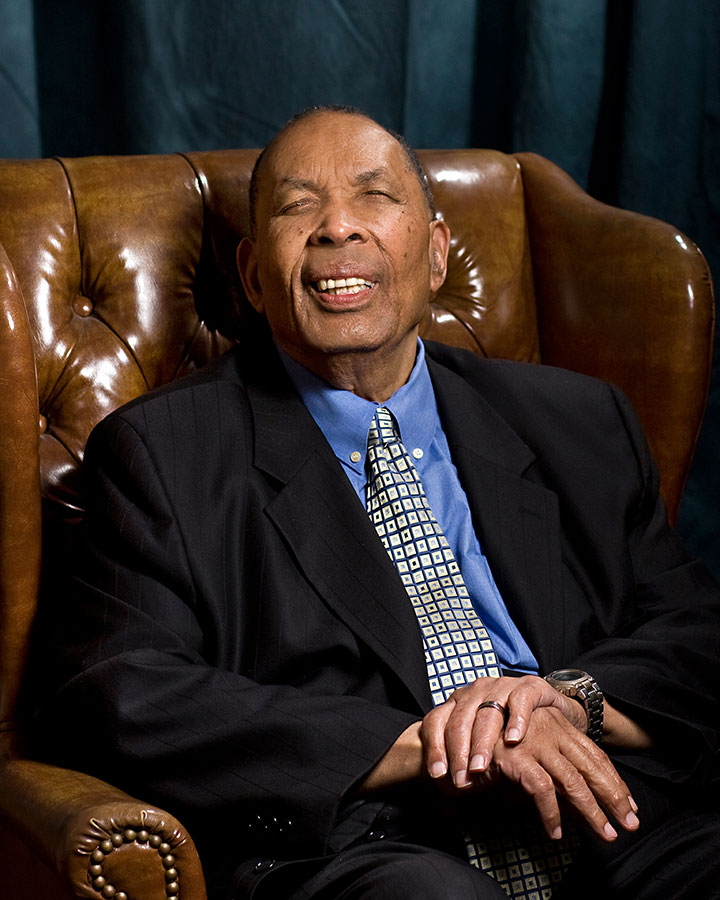D.A. Carson lectures on the parables of Jesus at Southeastern
January 19, 2017

 D.A. Carson lectured on the parables of Jesus at Southeastern Baptist Theological Seminary (SEBTS) on Feb. 11–12 as a part of the Adams lecture series.
D.A. Carson lectured on the parables of Jesus at Southeastern Baptist Theological Seminary (SEBTS) on Feb. 11–12 as a part of the Adams lecture series.
Carson is a New Testament research professor at Trinity Evangelical Divinity School in Deerfield, Ill. and the author of more than 50 books.
Carson’s first lecture, from Matthew 13:10-17, 34-35, 52, sought to answer the question, why does Jesus tell stories?
He encouraged listeners with three main applications. “Gain wonder in worship where there is a fresh grasp of how God has put the Bible together,” he said. “Gain gratitude in humility for the gift of seeing the truth about Jesus and His gospel because so many people do not see it.”
“We should gain discretion in witness where there is a hostile environment,” Carson said. “For we too understand as Isaiah … as Jesus … as Paul understand that sometimes the environment is so hostile that you must approach these things with a certain kind of discretion [and] understanding that the truth itself can blind, harden and deafen as well as reveal.”
Carson’s second lecture focused on the rich man and Lazarus in Luke 16:19-31. He encouraged readers to focus on contextual clues to read parables more probingly.
“You can have only one ultimate in your life,” Carson said. “What we pursue [and] what we serve become the measures by which we judge others.”
“The Pharisees saw no incompatibility between loving God and loving money,” Carson noted. “It’s so easy for us to measure God’s blessing on our lives in terms of material things.”
Carson expounded upon two kinds of justification, God declaring sinners just and one declaring oneself just. “Luke’s Gospel is constantly warning us against self-justification,” he said.
The name Lazarus means, “the one whom God helps.” In this story, Lazarus goes to heaven and the rich man becomes the beggar in hell. Even in hell, the rich man did not repent.
“This man in hell tries to correct Abraham’s theology, isn’t that spectacular?” Carson said. “People in hell will still be trying to justify themselves.”
Carson drew out several implications from the text for pastors. “In all of our attempts to show the Bible is relevant and has immediate application to life, never ever forget that in Scripture there is this fear of rejoicing to pursue and a place of torment to flee,” Carson emphasized. “There is a heaven to be gained and a hell to be feared.”
“The things in which we take so much pride – wealth, ethnicity, race, religious privilege education family, safety, beauty, athletic ability, charm [and] knowledge – may actually blind us to our need of grace,” Carson explained. “All of these wonderful grace gifts easily turn into gods, gods that de-god God. Who is Lazarus, that is, who is the one who is genuinely blessed by God?”
Furthermore, “God has never left Himself without witness and the most powerful of witnesses the One that thunders down from age to age, is the witness of Scripture,” he added. “We must listen to the witness of Scripture or we are lost people.”
Carson also lectured from Matthew 24 on how one should wait for the return of Jesus. “Wait for the Lord Jesus as servants who do not want to be surprised by their Master’s coming,” he said. “Wait for the Lord Jesus as stewards who must give account of their service, whether good or bad.”
“Wait as those who know the Master’s coming might be long delayed,” Carson said. “Warned not only to be ready but also to understand that the delay could be significant.”
“Wait for the Lord Jesus as slaves commissioned to approve their Master’s assets,” he said. “Meanwhile, our passion is to not improve our own assets but the Master’s.”
Throughout both lectures, Carson challenged listeners to humbly approach, learn and teach the parables of Jesus.
To view this message online, please click here.